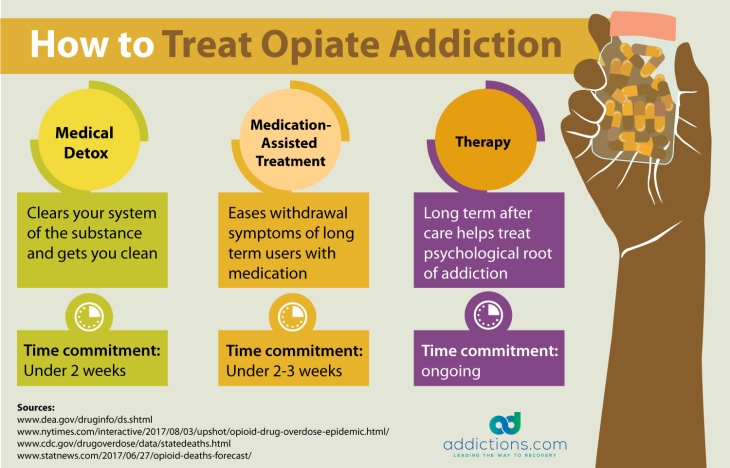The therapist can mention that the body functions relatively effectively to rid itself of moderate amounts of psychoactive compounds. However, excessive usage can damage organs and their communicating functions to the point of contributing to significant health issue, consisting of heart and lung impacts, weight management difficulties, and neurological and mental conditions, to name a few.
Once again, the client's analysis of this tradeoff might vary extensively from the therapist's, so the therapist intervenes most effectively when geared up with both an open mind and the capability to assert clear, accurate info. Likewise, considering that customers are rather varied in their viewpoints and analyses of the dangers and advantages of substance usage due to psychoeducation about drug results, the therapist stays attentive and responsive to the private client's perspective and cultural norms (what is the treatment for alcohol addiction).
Even when the client acknowledges the dangerous nature of substance usage, the client for whom compound usage concerns have emerged in therapy also normally expresses some wish to continuing use to get the benefits regardless of the dangers, even considerable ones. A psychoeducational stance allows the therapist to stay more neutral while still triggering examination of various angles on the subject.
The body has natural systems for getting reward and decreasing damage from interactions with the environment, including the usage of exogenous psychedelic compounds. Together these 2 sets of biological functions reinforce the possibility that an individual will continue utilizing drugs or alcohol. The therapist essentially wishes to communicate that if modifications caused in the body by drugs are kept over a long period of time by repeated drug use, the capacity for damaging effects continues to increase.
Nevertheless, the quick actions and euphoric impacts of drugs with high dependency possible provide strong satisfaction that can eclipse the user's interests in non-drug activities and awareness of delayed costs of compound usage. Outcomes like tolerance and withdrawal can promote the user to engage in more regular administration of greater quantities of drugs.
Rumored Buzz on What Is The Best Treatment For Heroin Addiction
Therapists can assist substance utilizing clients to identify the characteristics of withdrawal, tolerance and dependence. Compound withdrawal. Regarding withdrawal, some clients might not know that particular symptoms they experience are attributable to the chemicals they are consuming. Therapists can assist educate such clients to the symptoms typically connected with the particular drugs the client has actually used (or is interested in using).
Other clients are acutely knowledgeable about their compound withdrawal symptoms, however state they have actually found out to live with them or do not believe there is much they can do about them. Still others believe they are funny, all simply part of Click for source an excellent night on the town. Whatever the customer's viewpoint, the therapist motivates the client to elaborate, and after that to think about possible interventions to attend to the client's own symptoms.
With respect to tolerance, the therapist informs the customer that just because the user's experience of a drug's results is diminished as tolerance establishes, it doesn't imply the potential or real damage is reduced. In truth, while tolerance does not guarantee problems, it might well increase the intensity of an addicting condition, particularly personallies who are genetically, clinically, or mentally vulnerable.
Some customers who utilize compounds clearly take pride in their high tolerance for their drugs of option (why detox befroe addiction treatment). Attempting to encourage a customer this is ill-advised will probably only raise resistance. But a psychoeducational intervention facilitates equal consideration of different perspectives on the same subject, including awareness of factors to feel casual or smug in addition to factors to be concerned about clients' reported capabilities to manage themselves when intoxicated.
Addiction. Compound reliance, a term familiar to readers of the DSM-IV, was often equated with dependency, but the term "Compound Reliance" was removed from the DSM-5, in efforts to simplify identify and streamline its description. The DSM-5 still refers to "Substance-related and addictive disorders" in the basic heading for the whole diagnostic category, while the severity of the disorder is now explained in terms of the variety of signs reported or showed by the client.
The Greatest Guide To What Is The Latest Treatment For Opioid Addiction
First of all there is terrific confusion in the public, the media, and even among researchers and professionals about how to identify chemical addiction from typical, unproblematic compound use. Terms, descriptions, and ramifications vary commonly across persons utilizing them. The therapist designs versatility through desire to freely acknowledge various, even contrasting perspectives as they emerge.
Second, lots of substance users fear or feel bitter the label of addiction, and might have little wish to go over or learn about it. A benefit of a psychoeducational approach is the capacity to present product in an abstract or eliminated fashion, even with an explicit declaration that the information may or may not pertain to the client.
Clients might use comments about their own circumstances in action to finding out generalized material, or they might take in information the therapist shares without explaining in words a reaction. The mindful therapist watches and listens for the customer's nonverbal in addition to spoken responses to psychoeducational material. A facial expression, a change in body posture, or a wordless sigh or groan each serves as hints for the therapist to invite comment. Therapists can supply techniques and clarify procedures by which customers can actively participate in deliberate modification procedures. Clients frequently gain from a therapist's guidance regarding identification and weighing of alternatives, choice from amongst options, and implementation of new techniques through regular practice. Specifically since lots of people who satisfy criteria for substance usage disorders have over-learned expectations of instant satisfaction, therapists also require to emphasize patience with the gradual, approximate nature of modification.

A therapist can strengthen the client's dedication to choices to prevent relapse by producing alternative viewpoints and techniques to promote much healthier coping activities. After clarifying possible barriers to treatment objectives, the customer and therapist broaden the regression avoidance plan by specifying new methods of thinking of problems and concerns, new approaches for managing challenging feelings and disruptive habits, and new ways for the client to inhabit time.

Engaging customers in new pastime and assisting them develop occupational options is essential in preparing to avoid regression. Rewarding abstaining from substance use, both total and partial, and also reinforcing alternatives to consumption of drugs or alcohol are empirically supported techniques for increasing motivation for modification (Miller, 2006). Typical factors in reliable treatments include enhancing a client's behavioral control abilities and altering reinforcement contingencies to incentivize abstinence (Carroll and Roundsaville, 2006).